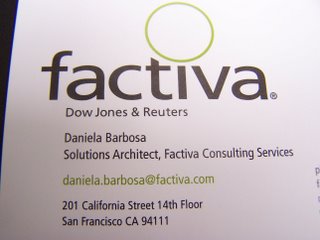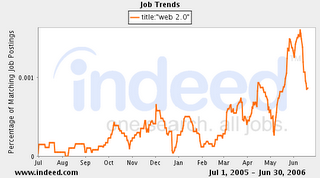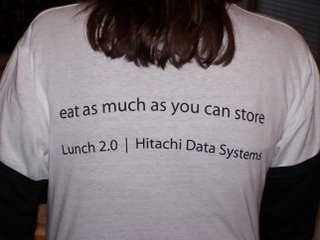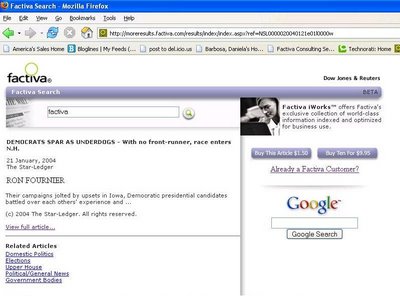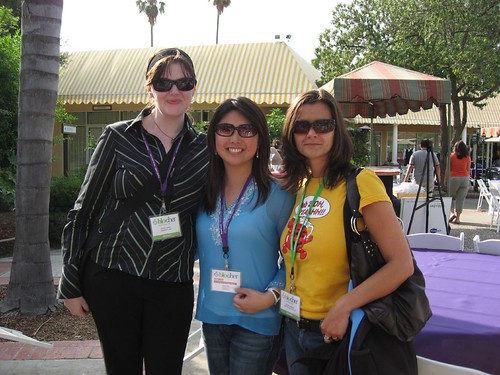 From Coach Wei's Direct from Web 2.0 Blog a post on Japanese companies adopting Web 2.0 in enterprise environments. According to the post some Japanese enterprises have been adopting Web 2.0 technologies for complex and mission critical systems including applications focused on financial trading, insurance, and power/electricity management. Nice to hear about some examples of Web 2.0 applications that go beyond the typical 'Web 2.0' collaboration enterprise functionality.
From Coach Wei's Direct from Web 2.0 Blog a post on Japanese companies adopting Web 2.0 in enterprise environments. According to the post some Japanese enterprises have been adopting Web 2.0 technologies for complex and mission critical systems including applications focused on financial trading, insurance, and power/electricity management. Nice to hear about some examples of Web 2.0 applications that go beyond the typical 'Web 2.0' collaboration enterprise functionality.Coach Wei writes: "We have seen a lot of web 2.0 demonstrations from various US companies, a lot of which emphasizes sexiness rather than what is really important to users. - in contrast, if you see the demonstrations from Japan, you will see how they took care of every aspect of user-centricity: look and feel, screen layout, style, visual cues, navigation, efficiency, performance, etc. to the degree that you almost feel the Japan culture embodied within these applications."
I would certainly be interested in seeing/hearing more about these applications as well as the processes that these companies took to deliver such applications to their users and what the adoption has been like. Coach Wei invited the two presenters from Hitachi to the upcoming AjaxWorld conference in Santa Clara to present their applications maybe they will and we will learn more.
In Dion Hinchcliffe's Enterprise 2.0 post today 'Can Web 2.0 be adopted in the Enterprise' he summarizes Andrew McAfee's speech at the New New Internet conference where there seems to be a lot of conversation about the enterprise development and adoption of 2.0 enterprise applications. (podcast available )- I also got a nice overview of that conference from Dennis McDonald. Hinchcliffe has also posted on agile software development and Web 2.0 development techniques in the past. I wonder if Japanese enterprise software developers are using these techniques that McAfee and others are talking about?



